gene editing
Latest

CRISPR-based gene editing therapy approved by the FDA for the first time
The FDA greenlit two new drugs for the treatment of sickle cell disease in patients 12 and older, one of which —Vertex’s drug Casgevy.
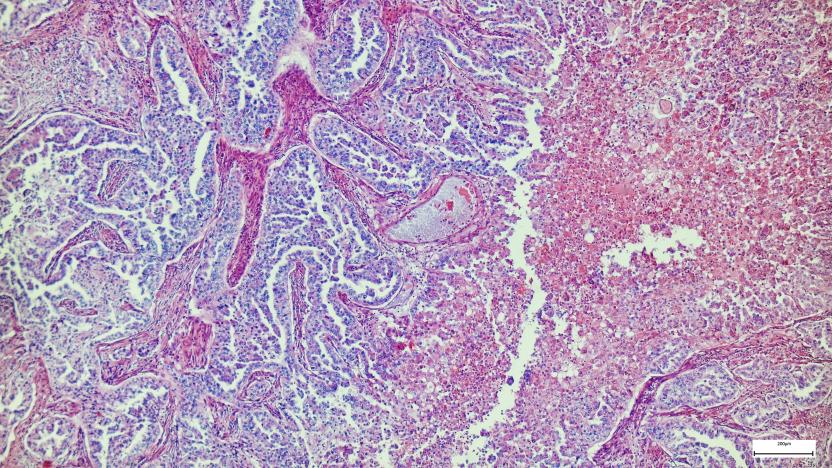
Researchers developed a gene-editing technology that reduces 'bad' cholesterol
Researchers discovered that a single infusion of a gene-editing treatment called VERVE-101 can reduce high cholesterol in patients.

Many Americans distrust emerging technology, new study finds
Change is hard and new things are scary, according to the survey's respondents.
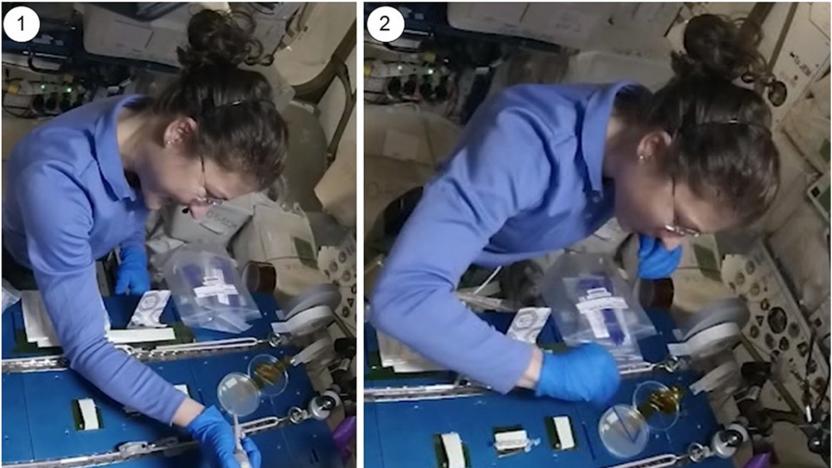
Astronauts show how CRISPR gene editing works in space
Astronauts have successfully used CRISPR gene editing in space for the first time, paving the way for studies of how space travel affects the human body.
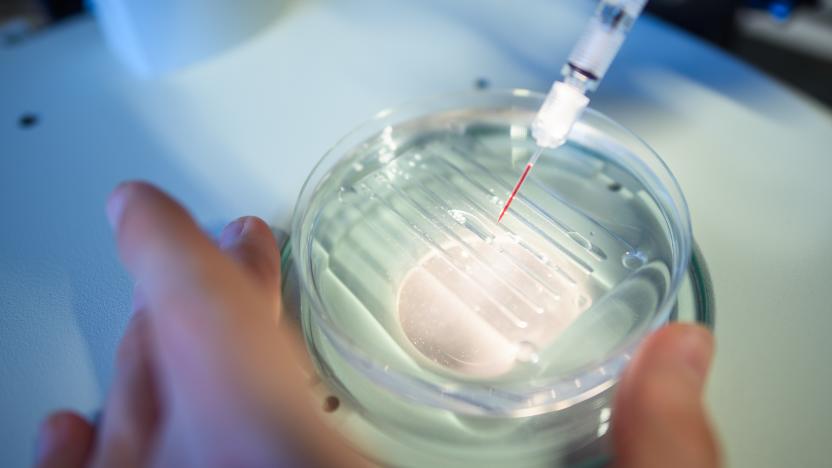
CRISPR gene editing breakthrough could treat many more diseases
Researchers have discovered that you can inject CRISPR gene editing directly into the bloodstream, potentially leading to effective treatments for many diseases.
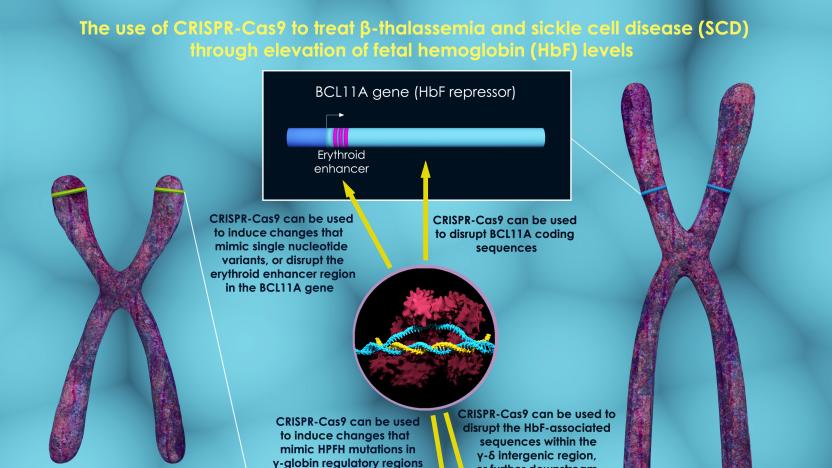
CRISPR gene editing shows promise for sickle cell disease
A breakthrough in CRISPR gene editing for patients with blood diseases shows the promise and problems with the new technology.

CRISPR gene editing pioneers win the 2020 Nobel Prize in Chemistry
CRISPR gene editing pioneers Emmanuelle Charpentier and Jennifer Doudna have won the 2020 Nobel Prize in Chemistry for a 'revolutionary' impact on science.

Scientist who edited babies' genes sentenced to three years in prison
Last year, a Stanford-trained scientist stunned the world by revealing that he had created the first genetically-edited babies using the CRISPR/Cas9 tool.
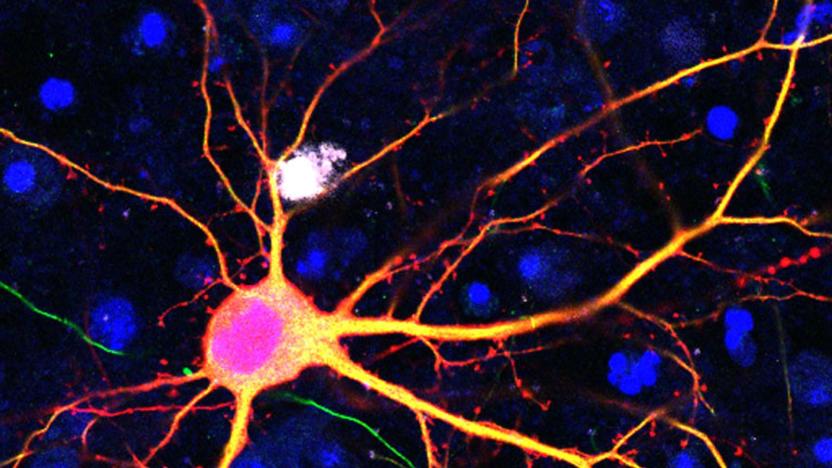
Gene editing tool could treat many diseases created by mutations
The use of gene editing to eliminate diseases has numerous challenges, including the not-so-small problem of dealing with mutation-based conditions like Huntington's. Existing approaches that replace the gene could cause damage. Salk Institute scientists say they've created a tool that can perform edits when mutations are at work. SATI (Single homology Arm donor mediated intro-Targeting Integration) builds on HITI, a variant of the familiar CRISPR-Cas9 gene editing technique, deals with mutations by inserting a healthy copy of a troublesome gene into the non-coding region of DNA. As the DNA repairs itself, the normal gene integrates into the genome alongside the old one -- it eliminates the harm from the mutation without taking risks.

Scientists created a CRISPR tool that can wipe out longer pieces of DNA
An international team of scientists have developed a new CRISPR-based, gene editing tool. The researchers, led by the University of Michigan and Cornell University, compare the new tool to a shredder capable of wiping out long stretches of DNA. In comparison, previous CRISPR tools have been more like scissors that make individual snips. With the new method, scientists hope they might better understand various diseases and develop more advanced treatments.
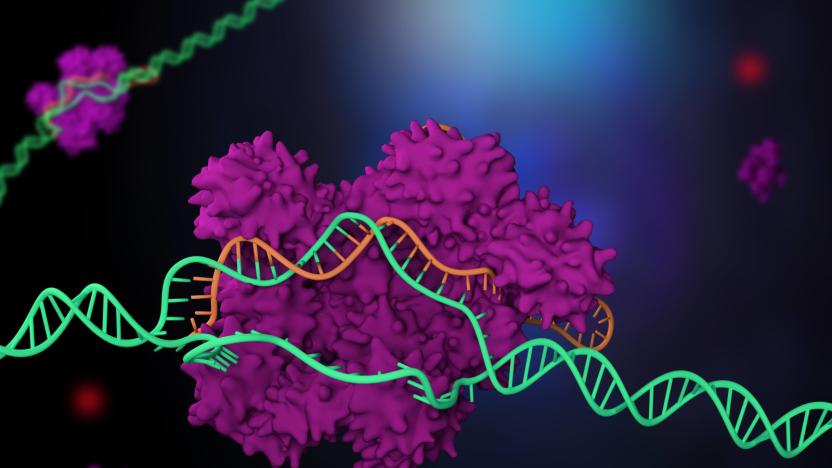
CRISPR gene editing has been used on humans in the US
The first human trials in the US for CRISPR gene editing are officially underway. A University of Pennsylvania in Philadelphia spokesman has confirmed to NPR that two cancer patients, one with myeloma and one with sarcoma, have received CRISPR treatments after standard treatment didn't hold. The trial removes, modifies and reinserts immune cells in hopes they'll destroy cancerous cells.

CRISPR doc 'Human Nature' embraces the hope and peril of gene editing
When making a documentary on something as groundbreaking and controversial as CRISPR, the gene editing tool that could potentially help us eradicate cancer, you need a deft touch. Lean into the hard science, and it might be too complex for general viewers. Focus intensely on the downsides -- like its potential to lead us down the dark path of eugenics -- and it might sound unnecessarily preachy. Go too light on either of those aspects, and it might be hard to take your film seriously.
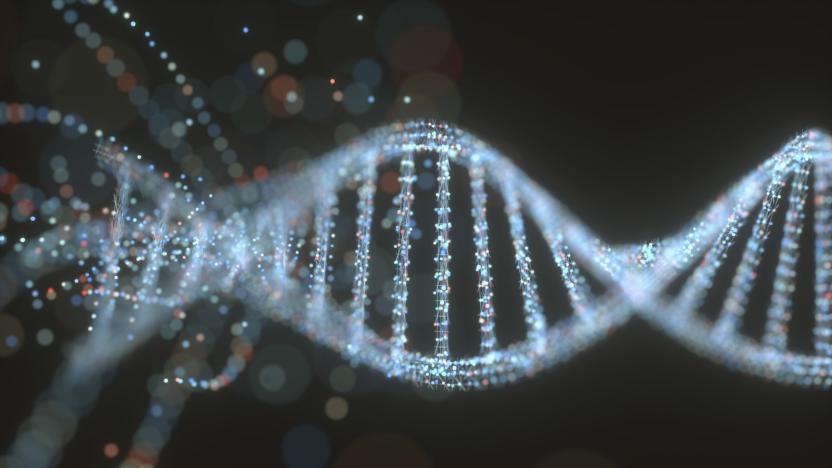
CRISPR gene-editing experiment may have impacted twins' brains
Researchers have published research into a gene at the heart of a controversial human gene-editing experiment, lending more weight to the theory that it inhibits cognitive function. But no one knows how the method may have affected the minds of the Chinese twins at the center of the issue. One scientist involved in the study, University of California, Los Angeles neurobiologist Alcino J. Silva, said the "mutations will probably have an impact on cognitive function," but it's impossible as yet to predict the precise effects. The CRISPR-Cas9 gene-editing technique has previously been linked with unintended DNA damage.
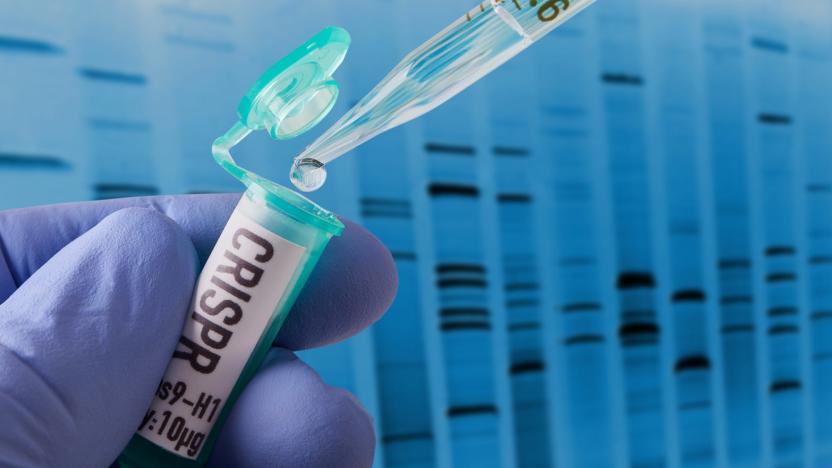
Scientists use CRISPR to make stem cells invisible to immune system
Scientists at the University of California San Francisco have developed a new method to minimize the likelihood that a person's body will reject stem cells during a transplant. Using the CRISPR gene editing tools, the scientists managed to create stem cells that are effectively invisible to the body's immune system.

Anti-doping agency to ban gene editing starting in 2018
Anti-doping agencies are constantly playing whack-a-mole with cheating; new drugs pop up as soon as tests are found for the old ones. The World Anti-Doping Agency (WADA) now says it wants to to crush a new one before it grows into a monster: Gene-editing. Starting next year, the list of banned substances includes "gene editing agents designed to alter genome sequences and/or the transcriptional or epigenetic regulation of gene expression," the agency says.

Gene editing could make wheat safe for celiac sufferers
Celiac disease is thought to affect 1 in 100 people worldwide. Although doctors are still grappling with the causes of the autoimmune disorder, one thing is for sure: If you're diagnosed it with it, you should avoid gluten. But maintaining long-lasting dietary changes isn't easy -- especially when you have to discard some of the most common food items, like bread. Fortunately, hope may be at hand, thanks to good old science. Using gene-editing, researchers from Spain's Institute for Sustainable Agriculture are creating new types of wheat that reduce immune reactions in celiac disease sufferers.

CRISPR gene-editing could result in more successful birth rates
Gene-edited human embryos are offering new insights into the earliest stages of development, and could reduce the risk of miscarriage at the outset of pregnancy. In a new study, researchers from the UK's Francis Crick Institute used CRISPR Cas9 to block a gene (known as OCT4) in human embryos. By stopping it from functioning, the researchers saw that it no longer produced its resulting protein (also called OCT4). As a result, the human embryos ceased to attach or grow sufficiently. Their findings, published in the journal Nature, illustrate the importance of the gene in human development.

World's first in-human gene-editing treatment will tackle hemophilia
Hemophilia B is a terrifying disease. The livers of those suffering from the genetic disorder fail to produce a key protein called Factor IX, which is responsible for clotting blood. Without this protein, they're at constant risk of uncontrollable bleeding, including internally. However, a pair of researchers believe that their novel gene therapy could permanently cure the disease. To that end, the team of Michael Holmes and Thomas Wechsler from Richmond, California's Sangamo biopharmaceuticals, have announced that the world's first in-patient gene-editing therapy targeting these faulty genes will commence next week.








